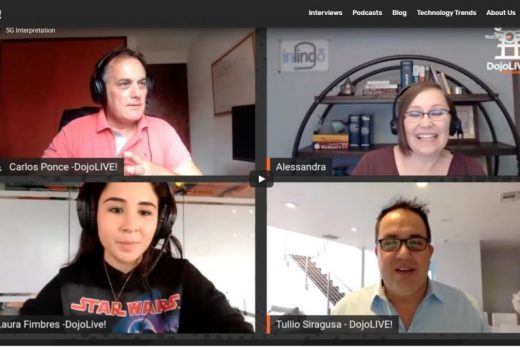When my grandmother was a teenager, on Sundays, she used to have so much fun going to Piazza D’Armi (Torino, Italy) to watch these guys:




And some years later, as an adult, she witnessed this:

Remember when it used to cost an arm and a leg to make an international phone call? It used to be, maybe, a once-a-month event, and all the family on both ends would gather around to be able to say hi to your loved ones at an established day and time.
Then we had Skype. Free calls over the internet. Video, too, if you had a webcam, that is. And still, it had to be at an established day and time agreed upon over email.
Now we can see our loved ones with the touch of a button, anytime, from anywhere, for free.
Is it the same as seeing them in person? Of course not, but thank God, we have this new technology.
Can you imagine going through Covid-19 without the internet? Without WhatsApp, Facebook, Zoom, just to name a few platforms that are keeping us connected every day.
I know many people that cannot stand technology. Some hate social media. I even know of some people who still have a flip phone. Every single thing in life has positive and negative aspects. Nothing is perfect, and each and every one of us has different opinions.
“The most profound technologies are those that disappear. They weave themselves into the fabric of everyday life until they are indistinguishable from it”. Mark Wiser, Chief Technologist at Xerox PARC in the 1990s.
Think of computers, or, if we step back in time a little, all the appliances we have in our homes, from the refrigerator to washer and dryer, from AC to the microwave oven. Oh, and now we can talk to them, by the way. These are all things that “weaved themselves into the fabric of everyday life” – they are no longer special, they are normal. For our children, a smartphone is not a smartphone, it’s just a phone!
What fascinates me about new technologies is not the new technology itself, but to know that if it was given to the general public, it means that at some levels, it is already considered obsolete.
Why am I talking about all this? Because what we call “Progress” can be seen as good or bad, negative or positive, certainly not perfect, but only one thing is for sure: it’s inevitable!
Whether you like it or not, whether you want to stand your ground and fight to keep things as they are, the future is inevitable. And if you are not open to change (that’s another thing that is a constant in life, ergo, inevitable!), you are going to be left behind.
Please take the time to watch this video. It explains it beautifully.
“Science fiction is becoming science fact.”
No doubt about it.
So we need to “learn to collaborate with the inevitable,” (my mom used to tell me this all the time) which is to say not to become a victim of change but to own it, to take it into your own hands and use it to your advantage, to your progress. Trying to fight it is a waste of time and energy.
5G is yet another thing that has many negative as well as positive aspects, and regardless of how we feel about it, it is here to stay. So, let’s focus on the positive: connectivity issues are about to be a thing of the past.
With all that being said, remote interpreting is the future of our industry. Whether you like it or not.
Here’s another excellent quote “Interpreters will never be replaced by technology, they will be replaced by interpreters who use technology,” Bill Woods (Pioneer of Interpreting technologies).
VRI (Video Remote Interpretation) can now be 3-way or more. RSI (Remote Simultaneous Interpretation) maybe still have a few little technicalities to work around, but this opens the doors to a human-only trait that cannot be replaced: creativity. So with a bit of creativity, remote team interpreting can happen, actually it is happening, even without being in the same booth.
By the way, soon we will all be holograms, so more than likely, there will be a booth in conferences held in Virtual Reality settings.
Instead of driving fellow interpreters to self-sabotage, instead of trying to hang on to the past, today, especially during this crisis, the leaders in our industry have the duty of helping fellow interpreters to lean to collaborate with the inevitable.
The key to it is to either work with direct clients or with agencies ran by us interpreters such as inLingo.
Now my question to you is: Do you still have a flip phone?
Alessandra Campana,
Italian Interpreter, founder of inLingo, a Remote Interpretation company





Recent Comments